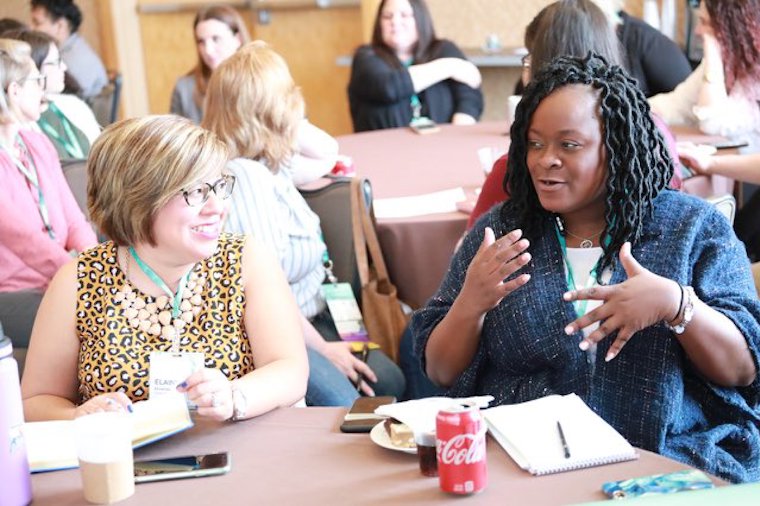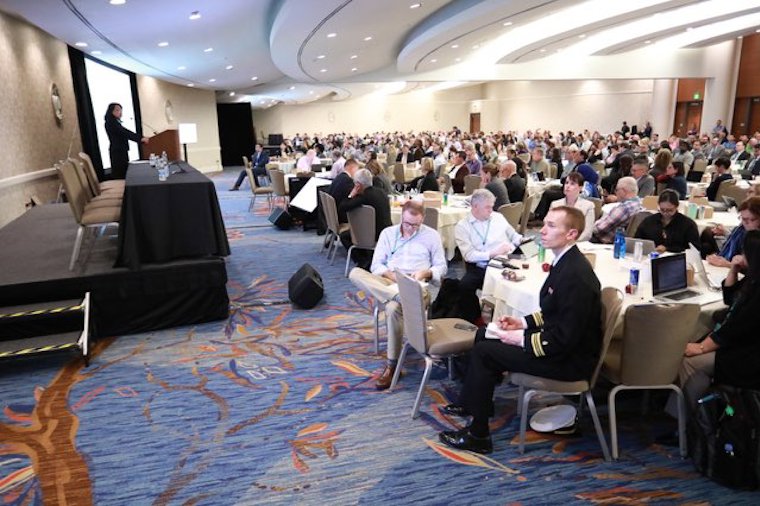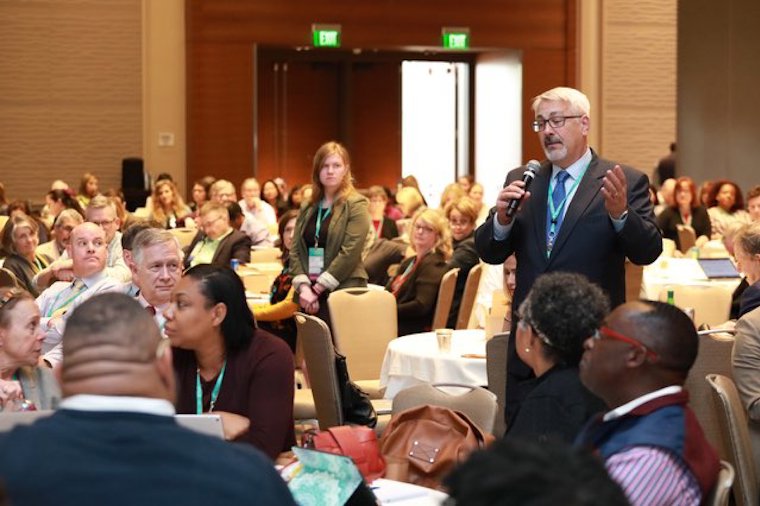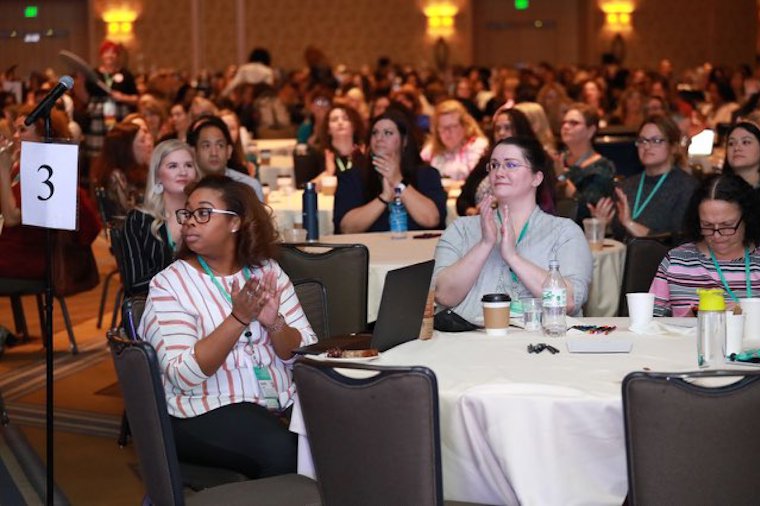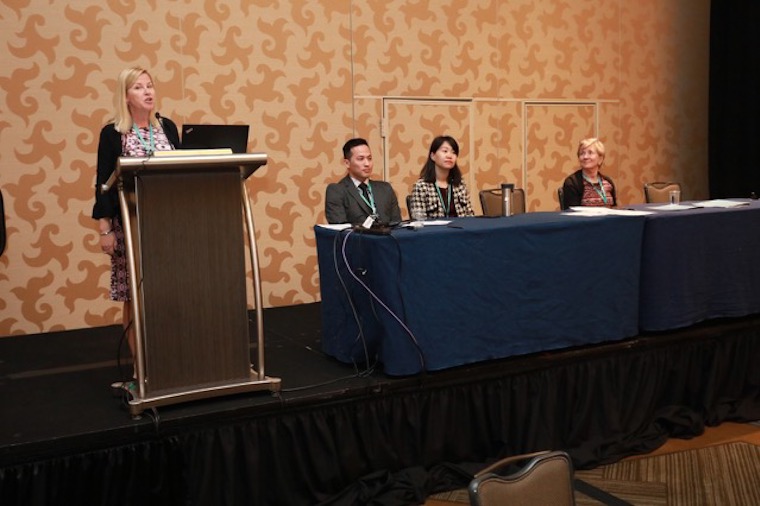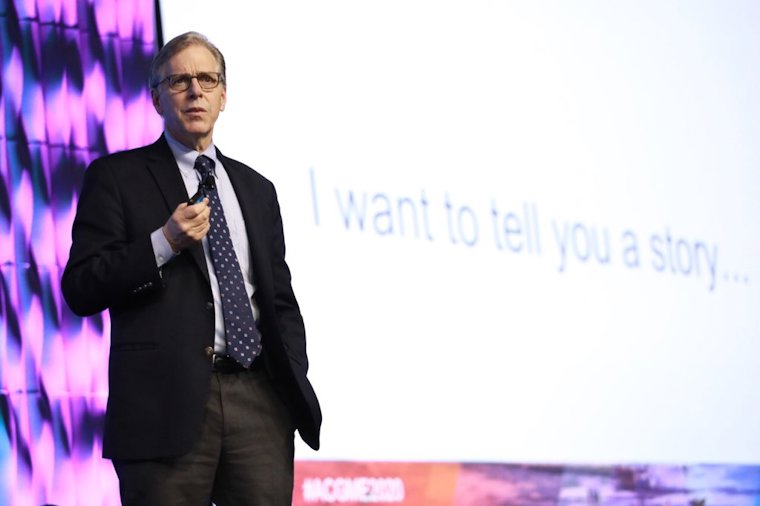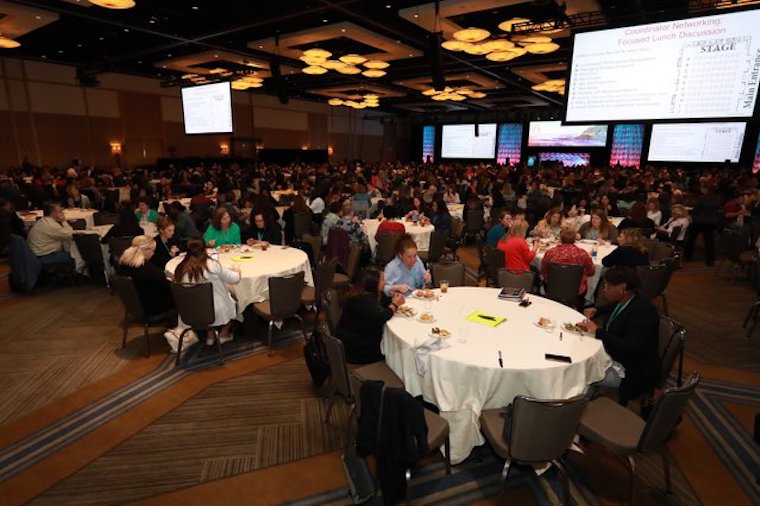The ACGME Annual Educational Conference kicked off today with five pre-conferences, during which members of the graduate medical education (GME) community connected and collaborated to positively influence the experience of patients, peers, colleagues, and themselves through their work and unique contributions. The pre-conferences are designed to appeal to those across experience levels from a first-year coordinator to seasoned designated institutional officials (DIOs).
DIO101 and 102: The Basics of Institutional Accreditation and Improvement and Innovation in the Sponsoring Institution
The pre-conference sessions for DIOs was an opportunity for the community to get insight into the workings of the Institutional Review Committee and updates on upcoming adjustments to the institutional accreditation process.
Institutional Review Committee Chair Susan Kirk, MD provided an overview of the committee’s work and decision-making process. She explained that the committee’s overarching philosophy on what is “substantial compliance” is to answer the question: “Would a reasonable person feel you were compliant with that requirement?” The general principles the committee uses to evaluate institutions, she said, are:
- Are the residents and fellows in this institution safe?
- Is their clinical learning environment one that encourages the safe care of patients?
- Is the DIO getting the support that s/he needs?
Dr. Kirk told the DIOs to make sure that the minutes from the institution’s Graduate Medical Education Committee are well documented and organized. “They are your proof of your promise that you are doing all that you say you are doing,” she said.
Discussion also addressed the focused revisions of the Institutional Requirements reflecting recent changes to the Common Program Requirements, including requirements that mention a partnership responsibility for the program and the institution. Executive Director, Institutional Accreditation Paul F. Johnson, MFA also noted that the new Program Directors' Guide to the Common Program Requirements contained context and details that DIOs would find helpful.
Annual Coordinator Forum
The Annual Coordinator Forum pre-conference, celebrating its 10th anniversary, kicked off this morning with a strong spirit of community and revelry. ACGME Director, Educational Activities Lauren Wojnarowski, MA welcomed the room of more than 1,300 institutional and program coordinators (the largest contingent to date). She recognized past and present members of the ACGME Coordinator Advisory Group, as well as the contributions of the coordinator community overall.
“From the seasoned coordinators who have seen it all, and have paved the way, sometimes painstakingly, for others. To the new coordinators who are hungry for guidance and professional development. You are the backbone of GME. I want to thank you for all you do for your programs, your residents and fellows, and each other,” she said.
ACGME Chief of Staff and Chief Education and Organizational Development Officer addressed the room, recognizing 2020 coordinator awardees and speaking about the evolution of the coordinator role in GME and the criticality of that role to meeting the ACGME mission of preparing the next generation of physicians in order to improve the health of the public. “You are the center of it all,” he said, and referenced the revised Common Program Requirements that now articulate, through a Background and Intent statement, the vital role of the coordinator in a GME program:
“Each program requires a lead administrative person, frequently referred to as a program coordinator, administrator, or as titled by the institution… The program coordinator is a member of the leadership team and is critical to the success of the program. As such, the program coordinator must possess skills in leadership and personnel management. Program coordinators are expected to develop unique knowledge of the ACGME and Program Requirements, policies, and procedures…Programs, in partnership with their Sponsoring Institutions, should encourage the professional development of their program coordinators and avail them of opportunities for both professional and personal growth…”
The morning’s first plenary speaker, Maria C. DeOliveira, MEd, the director of educational administration at Brigham and Women’s Hospital, spoke about growing in the coordinator role and described program administration as a partnership between faculty and administrative leadership that requires a fundamental base of trust between both. “Know your role—own it, embrace it, and don’t let anyone tell you otherwise,” she championed.
Themed “10 Years of Celebrating Community,” the forum’s agenda for the rest of Thursday was packed with similarly enriching and empowering plenaries and break-outs, as well as communal lunch with facilitated table discussions.
ACGME/AOGME Pre-Conference for Osteopathic Programs and Institutions
Members of the osteopathic physician community gathered Thursday to discuss ACGME accreditation and osteopathic recognition. The daylong session, which was a partnership with the Assembly of Osteopathic Graduate Medical Educators (AOGME), included information to help programs reach their accreditation goals effectively and efficiently.
Speakers Joanne Baker, MD and Juanita Braxton, PhD walked through the academic year, outlining the roles of a program director and program coordinator,and made suggestions as to the best times to complete tasks.
Braxton encouraged programs to reach out to each other to share resources and even files, like block diagrams and other materials. During the accreditation process, Baker said to review letters, including suggestions for improvements promptly. “Address issues immediately while memories are fresh,” she said.
The pre-conference also included a presentation by representatives from the Educational Commission for Foreign Medical Graduates (ECFMG), the non-profit organization that oversees international medical graduates (IMGs) who come to be educated in the United States.
“Physicians are crossing borders more and more frequently,” said ECFMG President and Chief Executive Officer William Pinsky, MD.
For many osteopathic programs, the transition from AOA approval to ACGME accreditation has opened up the possibility to accept IMGs. The presentation included an overview of the role of the ECFMG and a short explanation of how IMGs’ credentials are certified so they can participate in residency and fellowship programs.
Introductory Course for New Program Directors
This pre-conference, designed for program directors new to the ACGME and the accreditation process provided a detailed introduction to program director responsibilities, including an introduction to the ACGME, an explanation of the accreditation process, and a look at the written and unwritten jobs of the role. The course included didactics and small group breakouts. Presenters included the ACGME Senior Vice Presidents for Accreditation, Review Committee Chairs who are or have been program directors, and other staff members representing the ACGME and ACGME International.
Content covered a range of important topics, from program applications to scholarly activity, Annual Program Evaluations and the Self-Study process, financial aspects of graduate medical education, Milestones and the Clinical Competency Committee, and more. Real-life case studies offered challenging, thought-provoking scenarios, with a panel of experts adding insight and commentary to the discussion.
This evening will be a celebration with the Welcoming Poster Reception and Exhibitor Kick-Off and Awards Reception, and the full conference begins tomorrow morning with the Welcoming Remarks and President's Plenary. There is much to look forward to! Continue tagging #ACGME2020 on social media!

